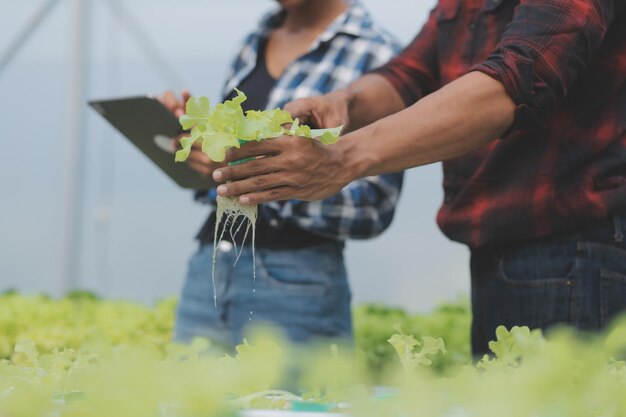Exploring Farming Careers: Your Gateway to a Sustainable Future
Farming: a timeless profession intertwined with the cycles of nature and the rhythms of life itself. It’s a field that not only feeds the world but also offers an array of rewarding career opportunities. Whether you’re driven by a love for the land, a desire to contribute to sustainable practices, or just exploring a new career path, farming jobs offer something for everyone.
🌾 Understanding the World of Farming Jobs
The Appeal of Farming Careers
Farming jobs have been a fundamental part of human civilization. Today, they offer more than just a way to earn a living; they promise a lifestyle and a chance to make a real difference. With growing awareness of sustainable living, many people are drawn to farming roles for their environmental impact and their potential for community development.
Types of Farming Jobs
There’s a vast array of roles within the farming sector, each with its unique set of skills and responsibilities. Here's a closer look:
- Crop Production: Involves planting, tending, and harvesting crops. It requires knowledge of different plants, soil types, and farming techniques.
- Livestock Management: Focuses on rearing animals for products such as milk, meat, and wool.
- Agricultural Technology: Includes developing and using new technologies to boost crop yield and efficiency.
- Farm Management: Involves overseeing all farm operations, managing budgets, and ensuring sustainability practices.
- Agricultural Consultancy: Provides advice to farmers on best practices, crop protection, and market trends.
🌱 Skills and Qualifications for Farming Jobs
Essential Skills
Those looking to pursue a career in farming should possess several key skills:
- Physical Stamina: Farming often involves manual labor and long hours.
- Technical Knowledge: Understanding machinery, crop cycles, and animal behavior is crucial.
- Problem-Solving: The ability to address weather challenges, pest infestations, and equipment failures is vital.
- Management Skills: It’s essential for those overseeing farm operations or working in consultancy.
Educational Pathways
While many farming skills are learned on the job, formal education can be beneficial:
- Agricultural Science Degrees: Offer comprehensive knowledge of modern farming practices.
- Veterinary Science: Essential for those focusing on livestock management.
- Agri-business: Helpful for roles in farm management and consultancy.
🌻 The Challenges and Rewards of Farming Careers
Common Challenges
Farming comes with its own set of challenges:
- Weather Dependence: Weather can significantly impact productivity.
- Market Fluctuations: Changing market demands can affect profits.
- Sustainability Requirements: Implementing sustainable practices requires ongoing adaptation.
The Rewards
Despite the challenges, the farming industry offers many rewards:
- Sense of Accomplishment: Seeing the fruits of your labor can be incredibly fulfilling.
- Community Impact: Farmers contribute directly to the well-being of their communities.
- Environmental Contribution: Sustainable farming practices help preserve the environment.
🚜 Getting Started in Farming Jobs
Gaining Experience
Many begin their farming careers through:
- Internships and Apprenticeships: These provide hands-on experience and mentorship.
- Volunteering: Offers exposure to different types of farming operations.
- Entry-Level Positions: Roles such as farmhand allow you to learn on the job.
Building a Network
Creating connections within the agricultural community can open doors to career advancement:
- Join Farming Associations: Networking events and conferences can introduce you to industry leaders.
- Online Communities: Forums and social media groups offer support and knowledge sharing.
Financial Considerations
Entering the farming world involves some financial planning:
- Funding and Grants: Look into governmental and private grants for startup farmers.
- Investment: Be prepared for initial outlay costs in equipment and resources.
🌾 Summary and Key Takeaways
Here's a quick recap and practical tips for those eyeing a future in farming:
- Explore Diverse Roles: There are multiple career pathways within farming, from hands-on fieldwork to technological roles.
- Develop Necessary Skills: Focus on acquiring both technical and soft skills crucial for farming success.
- Address Industry Challenges: Stay adaptable to tackle issues like climate impact and market variability.
- Network and Learn: Engage with farming communities both online and offline to grow professionally.
🌿 Looking Ahead: The Future of Farming Careers
The farming industry is progressively integrating technology, leading to a spectrum of innovative career opportunities. The global emphasis on sustainability will continue to redefine farming practices, making it an exciting career choice for those passionate about making a positive impact on the planet.
Embarking on a career in farming holds the promise of a fulfilling journey, marked by continuous learning and the opportunity to contribute significantly to society and the environment. Whether you are on the brink of choosing a career path or contemplating a shift from your current role, farming offers a compelling option worth exploring.

Related Topics
- A Comprehensive Guide To Cleaning Jobs
- A Comprehensive Guide To Event Planner Jobs
- A Comprehensive Guide To Graphic Design Jobs
- A Comprehensive Guide To IT Jobs: Exploring Opportunities Within The Tech Space
- A Comprehensive Guide To Journalist Jobs
- A Comprehensive Guide To Kindergarten Teacher Jobs
- A Comprehensive Guide To Librarian Jobs: Opportunities, Requirements, And Potential Earnings
- A Comprehensive Guide To Navigating LinkedIn Jobs
- A Comprehensive Guide To Pharmacy Jobs: An Uncharted Path To a Promising Career
- A Comprehensive Guide To Photographer Jobs
